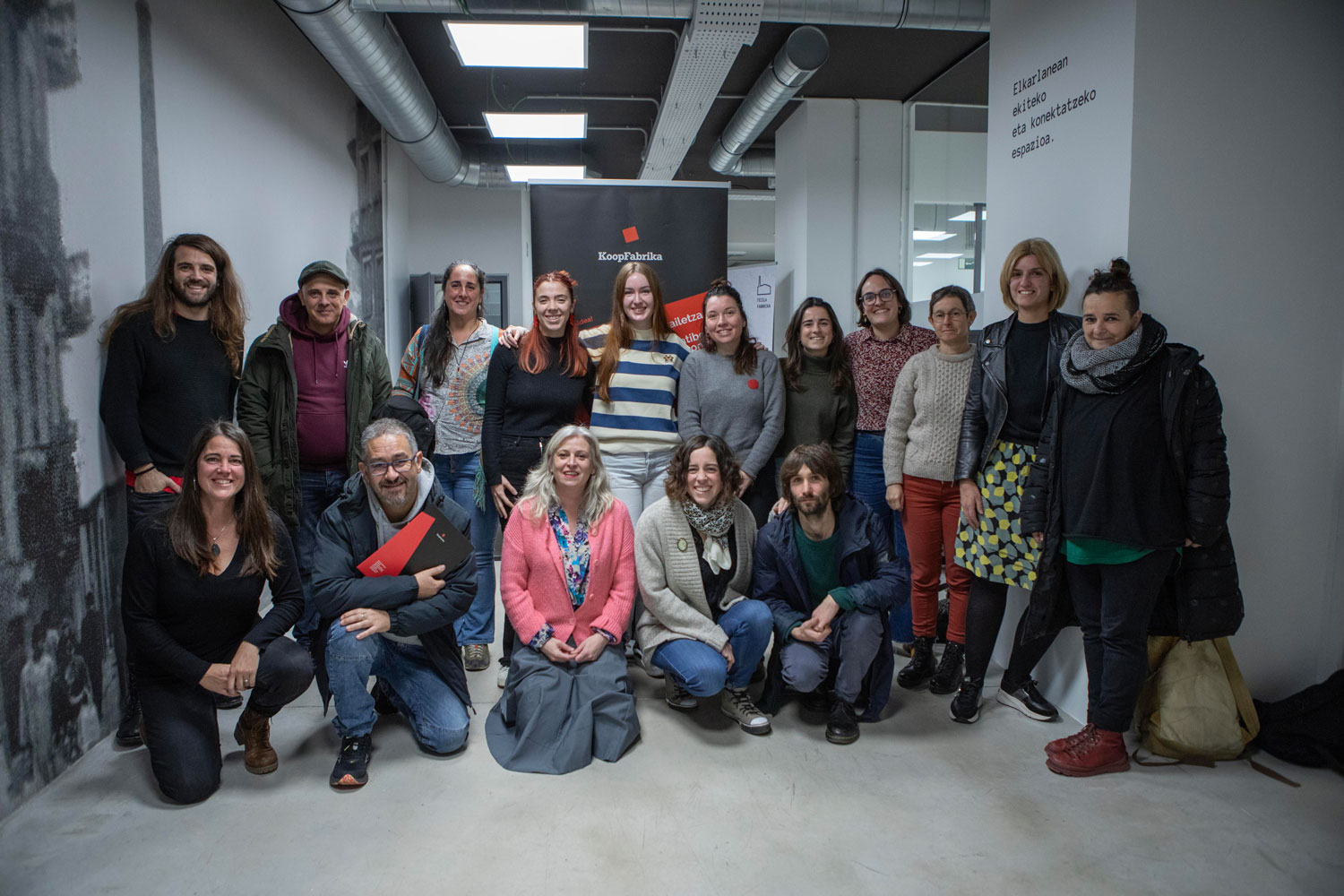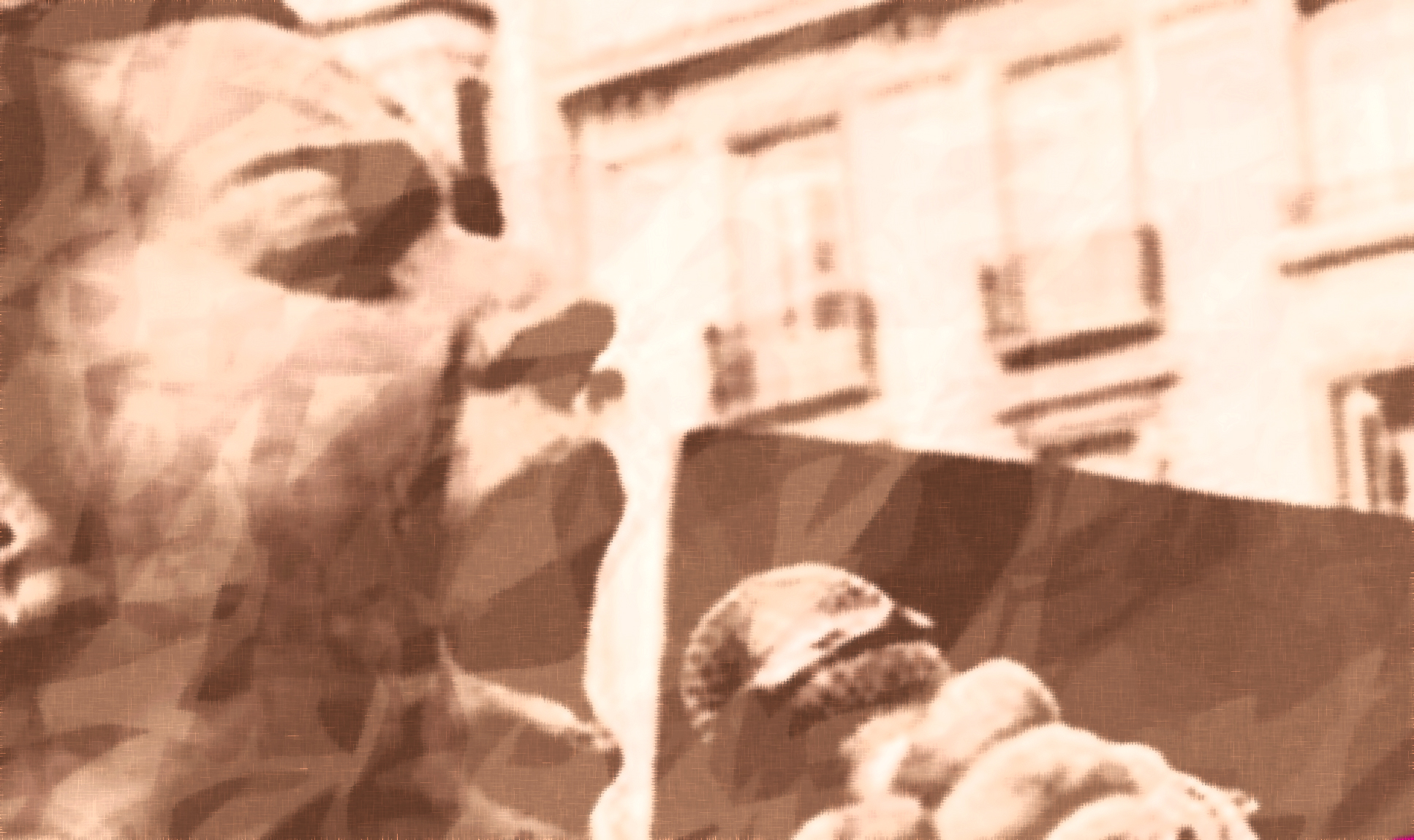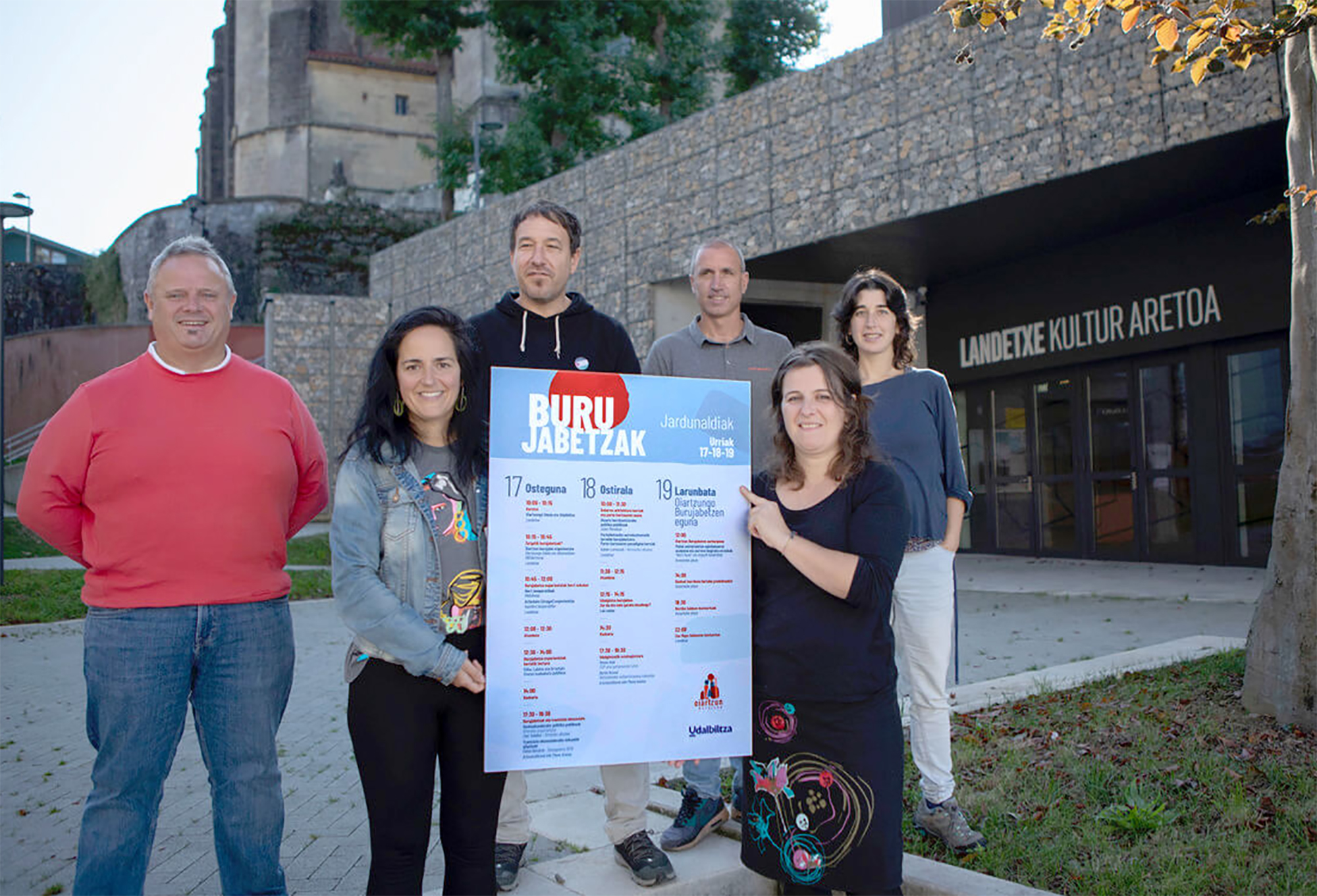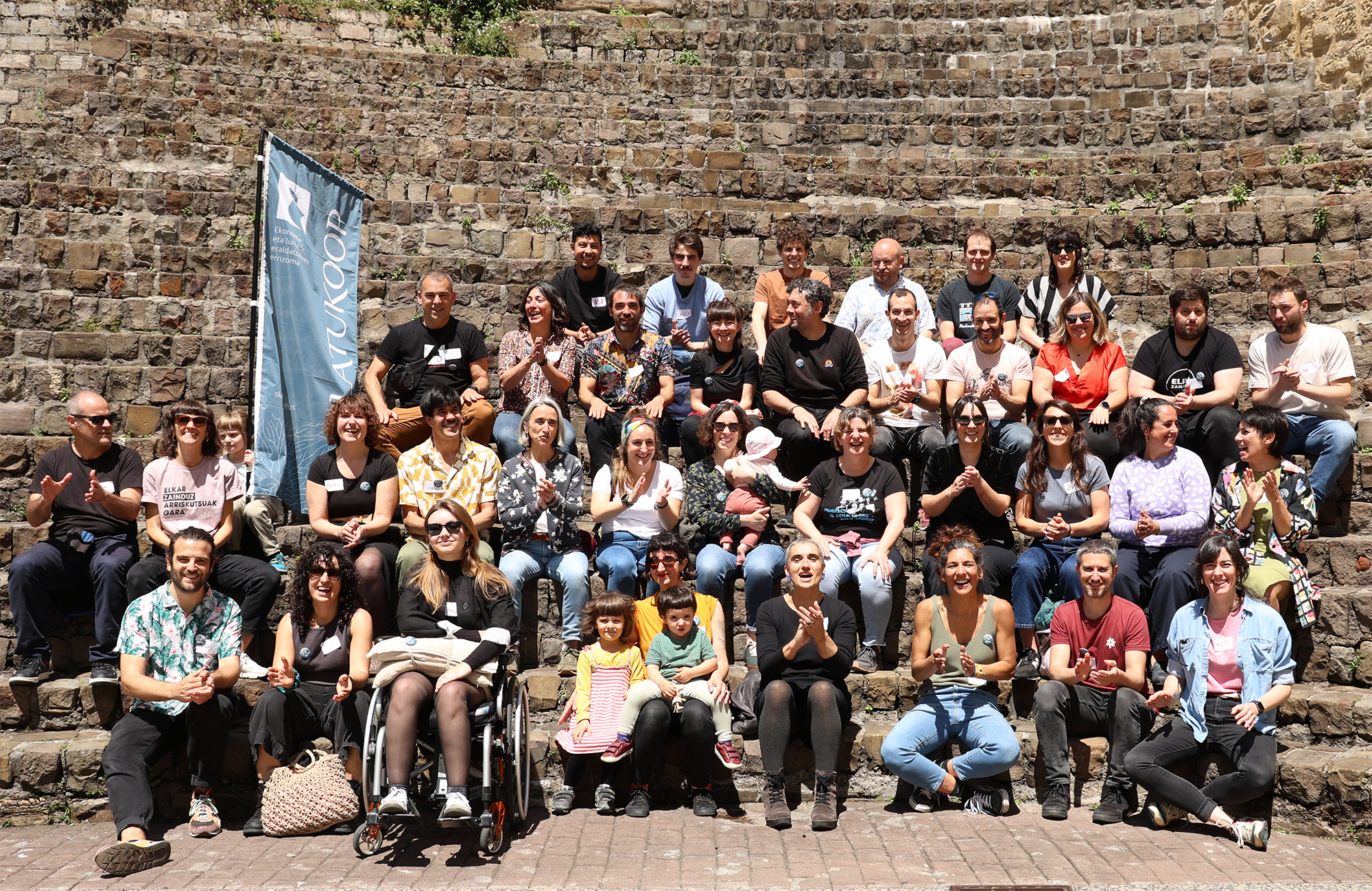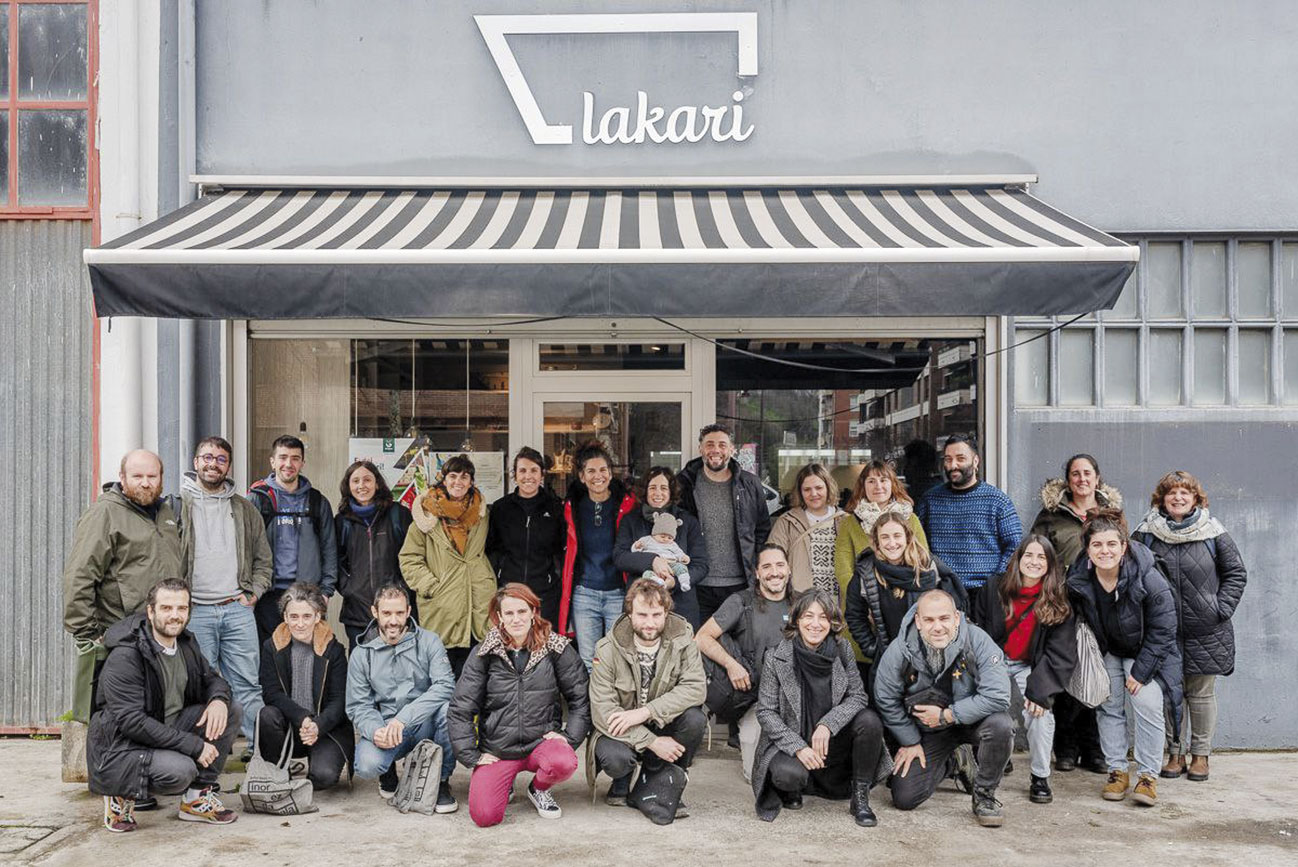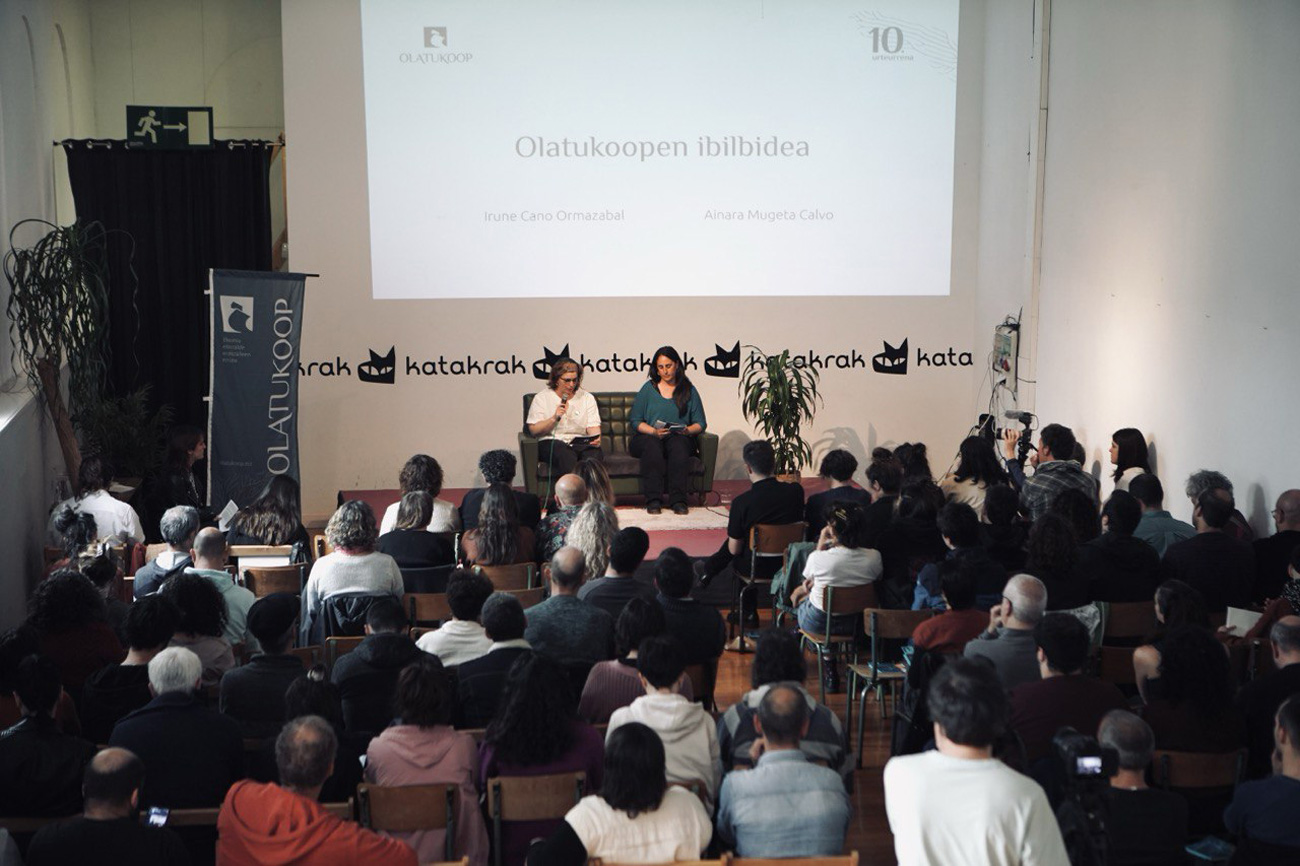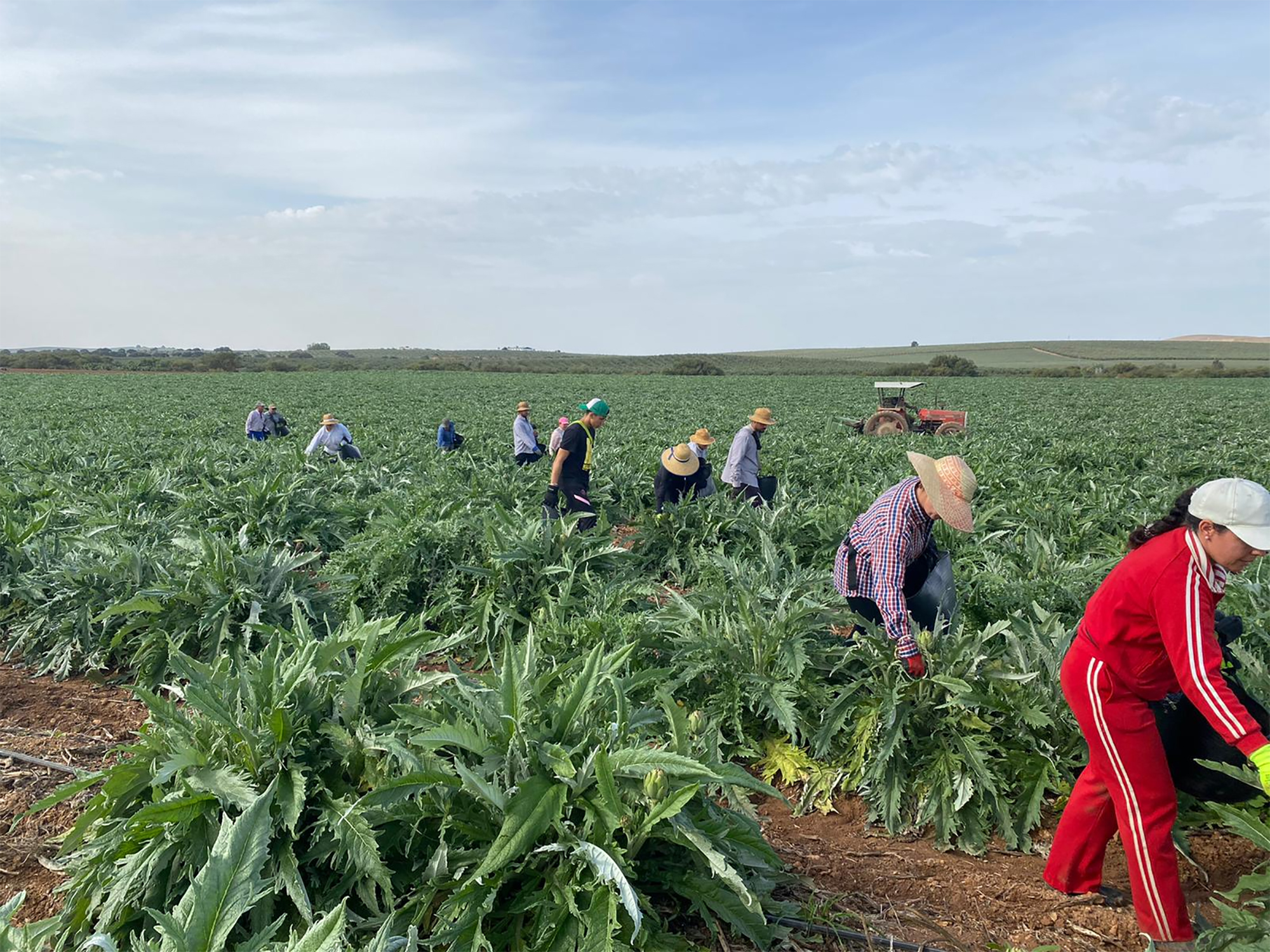Ten years working for a more prosperous life for all
- The Transformative Social Economy movement was born in Euskal Herria ten years ago, framed in the Olatukoop network. At this time, little has been done: eleven cooperatives and initiatives have been launched and the network has been extended. But the challenges are not of any kind either, from the democratic values of the economy and by focusing people, to promote projects rooted in the territory, among others.
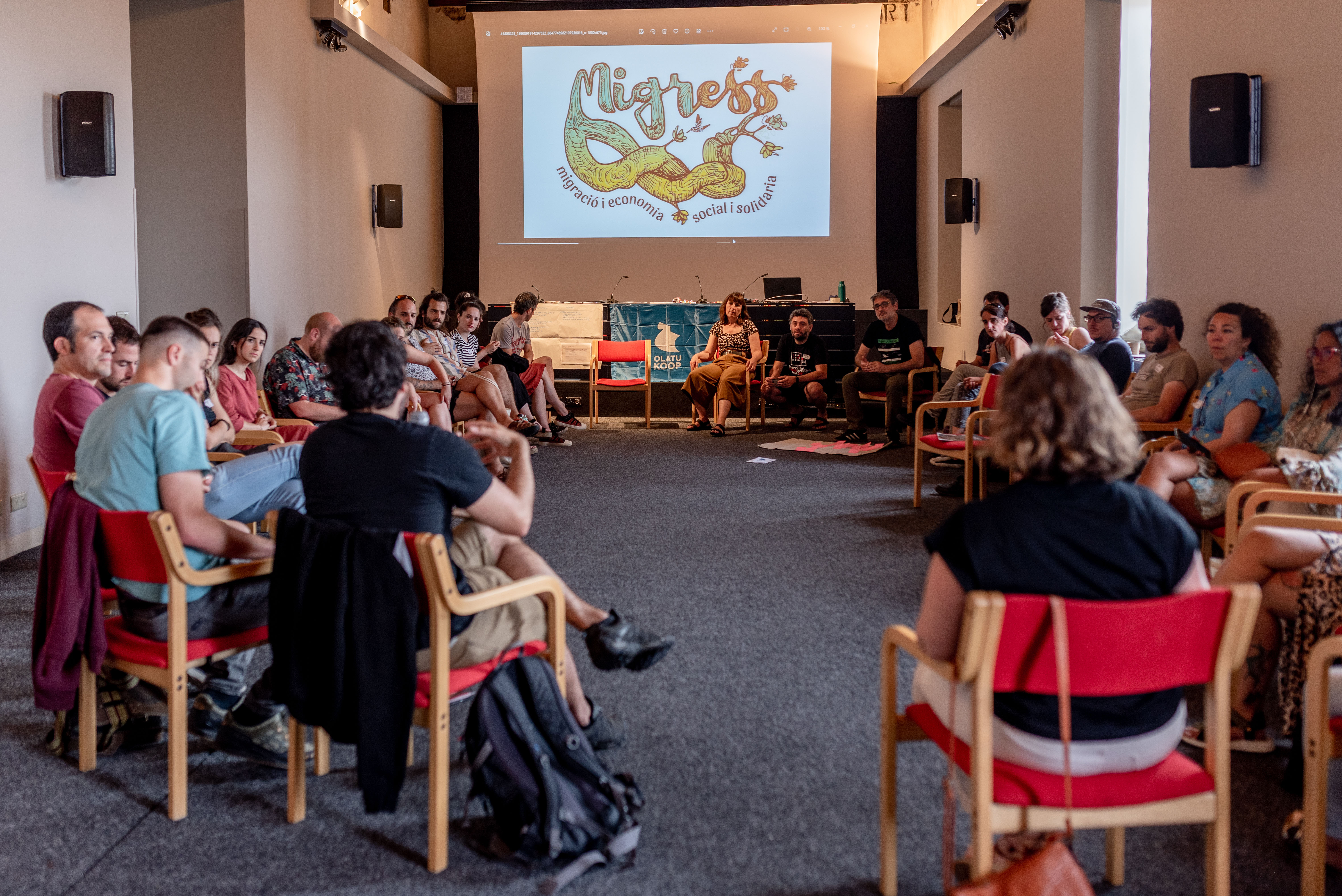
The economic and social reality of Euskal Herria, hit hard by a deep crisis, was radically different in 2014, when compared to six years ago. The sharp increase in unemployment, the continuous closure of companies, the layoffs… The cuts suffered by citizens in their meats and the consequences of the “rescue” of banks. Just take a look at the newspaper library to realize the situation.
According to Gaindegia "again" in 2013, jobs were destroyed, especially among young people, and injuries caused by the closure of companies such as Corrugados, Fagor Household Appliances or Inasa continued to live. Perhaps the popular wall made by the Inasa workers not to carry the machinery of the Irurtzun factory represents the lack of labor sovereignty.
Until then, the report prescribed that work had to be found after studying, but the idea of the "social elevator" fell into bankruptcy. At this juncture, several people decided to approach self-organization based on their work experience and capacity, as the labour market was no longer satisfactory. In a short time, the rate of creation of the cooperative in Euskal Herria tripled, as Beñat Irasuegi, a member of the Talaios cooperative, recalls: "Today this rate is maintained, and it is probably a sign that the crisis is still there." In their opinion, the most prominent symptom is the precarization of work, "awakens people the desire for self-formation, although there is also an adverse effect, such as those who resort to management in search of occupational safety".
The network's trajectory in this decade has not always been the result of a premeditated strategy. Intuition and internal logics have also marked the direction
But back to 2014. At that time there was also the privatisation of sectors such as telecommunications, energy, finance... and other projects were launched. That is where Goiener, Koop57 or Fiare are. All these ingredients were the spark of the transformative economy and the new cooperative wave.
From an open call
"We knew nothing about cooperativism, but we had a basic idea: we wanted to work with other cooperatives especially like ours," Irasuegi said. In addition, at the time, people from the Catalan area of Coop57 began to gather together, with the intention of transferring this experience to the Basque Country, but for this a critical mass was needed. Along these lines, they decided to hold an open call on the Internet in order to create a network.
"When I saw it on Twitter I said to myself, "We have to go there," says Leire Udabe, from the Lakari cooperative. Doing "hartazgo" of the previous work, he and other members were creating the company at the time: "We knew we wanted to organize ourselves in the collective and when we saw the open bases of the network we did not hesitate." Olatukoop, the Transforming Social Economy Network of the Basque Country, was born on May 14, 2014.
.jpg)
Initially it was between eight and ten companies, today it is a wide network of partners, members and territorial networks of more than 60 companies or institutions from all over the Basque Country. It participates in numerous projects and projects and more and more territorial nodes are working on the transformative economy. Olatukoop has become an inescapable reference, both beyond the cannibalism of the market and the cooperative activity followed by the Mondragon model, for many agents and institutions that want to build an alternative through the Transformative Social Economy.
Filling the concept with content
Here the key is the word "transformer." Knowing that in Catalonia the meaning of the “solidarity” economy in Euskal Herria is not understood in the same way, which has often been linked to assistentialism in the NGO, a group that was “conspiring” about the economy proposed another political concept. Anyone who wants to know exactly what the Transformative Social Economy (ESE) is, can do so if they want through the video made by Ikusgela.
This type of economy is based primarily on the reconciliation of life and work, but with the objective of transforming the economic system and society in force: “It also intends to reflect the upward character, which comes from the urban world and has a militant point,” says Udabe. He says that the “plus” of the transformative economy is that it gives another meaning to work and understands it as a life project, beyond the productivist perspective. Irasuegi has also underlined the importance of “relocating” work because at one point it was being abandoned.
"We knew nothing about cooperativism, but we had a basic idea: we wanted to work with other cooperatives especially like ours"
Beñat Irasuegi, member of Olatukoop
From the cooperativist tradition the centrality of work, from the feminist economy the centralization of lives, and the suburban character... With that confluence they began to “fill with content” the concept of transformer, according to both, with the excuse that Olatukoop has reached ten years in our quote in Torrekua, Errenteria.
They plan to celebrate their anniversary successfully, with a festival organized on 18 May in Donostia. But before that, on 14 May, a political event will be held in Pamplona. In addition to presenting the challenges ahead, they will present the recently updated Open Bases. This letter speaks of the habitability of life and the transforming economy, of the cooperative economy, of the (trans)feminist, of the Basque, of the antiracist… It talks about the sovereignty of work, of collective control of decision-making processes, of intercooperation, of territorial transformation and of the common heritage… and of the ecological sustainability, of course.
In addition, in the context of the event, Olatukoop has produced two leaflets and has them in the oven, both of which are transformative and cooperative. One will be the brochure or guide of the public cooperative environment, the other has a deeper theoretical content and focuses on the economy: Transformative Economy (s), written by Óscar García, expert in Territorial Economy. ARGIA has published as a preview some details of this last book in the article "All the Adjectives of the Economy".
.jpg)
Unclosed track
The route of the network over this decade has not always been the result of a premeditated strategy, although it can do otherwise. Intuition and internal logics have often marked the direction. But who initially had a lot of “passion,” little by little has been taking another form among Olatukoop’s veterans. And on the contrary, among the members of territories where the network has recently expanded, they perceive the desire and the freshness to do new things, probably with the need.
After the first activist phase, it was time to structure it in 2017, creating the coordinating committee and other working groups. Since then, the growth of the network has led to continual arrangements and new structures, which by their openness have incorporated ideas from other currents, such as feminism and anti-racism. But the members of Olatukoop are clear that there is no perfect story: there have been debates, even crises, and sometimes it has been invented and sometimes not. 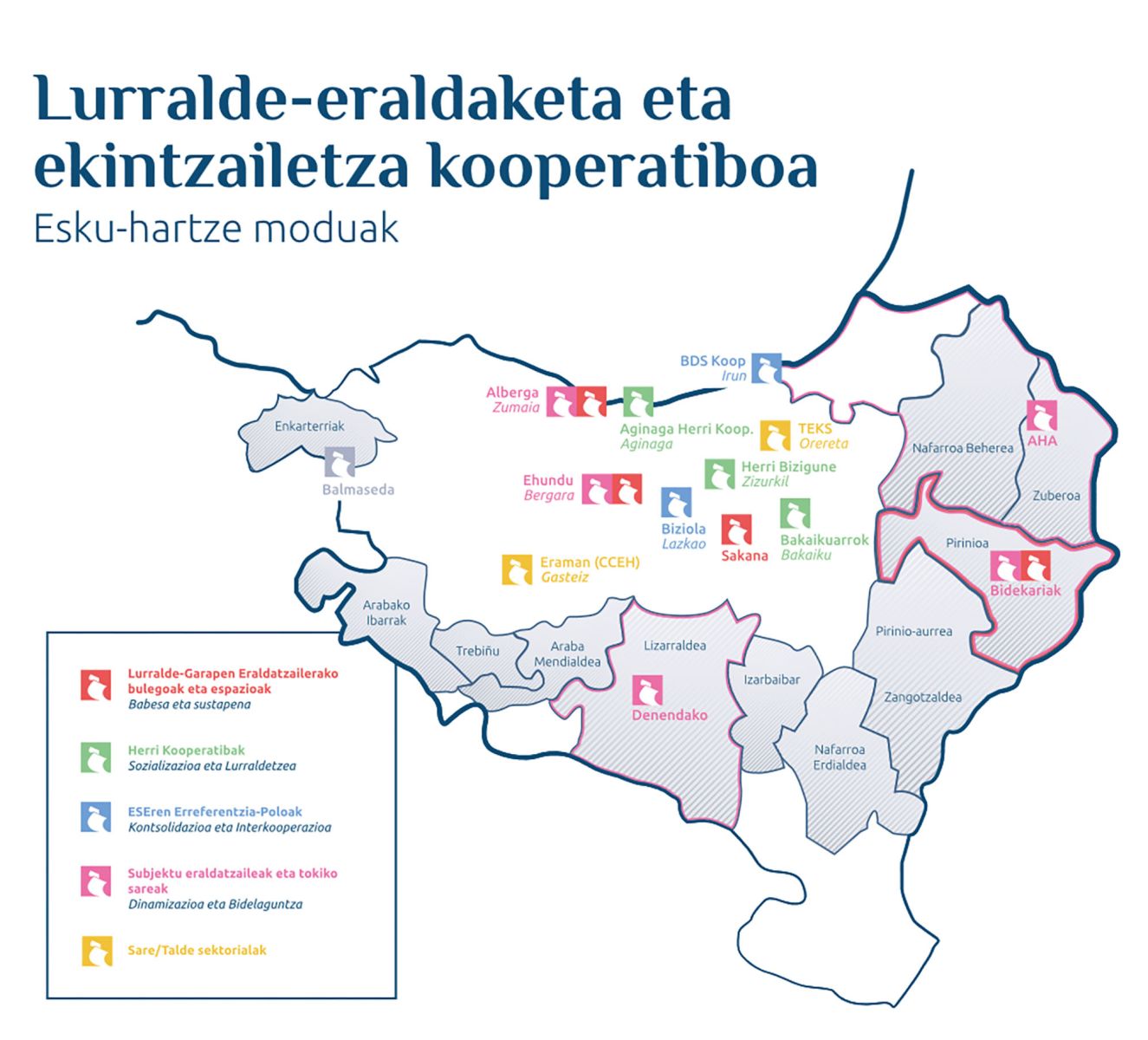
Territories and sectors
With the aim of territorial transformation, Olatukoop works to promote cooperative entrepreneurship, as you can see on the map above. The public cooperative Bakaikuarro and Zizurkilgo Herri Bizigune, the transforming subjects of Lizarralde, Balmaseda and Zuberoa, the reference poles, the sectoral networks, the transformation offices... intervene in many areas.
The Network has over 60 EU companies and institutions (ARGIA has been a member since 2017 and partner since 2020). Some work in strategic sectors such as Errigora, Ekhilur, Izarkom, Goiener or Koop57. There are others who work in the field of labor, such as the Andoni Esparza Social Action Association or the Manu Robles-Arangiz Foundation; there are also centres such as Aiaraldea Faktoria or Teja Factory; industrial workshops such as Mitxelena Workshops, food, technology and communication cooperatives smaller...
At the last meeting held last February, Olatukoop’s new proposal for forms of participation was approved and the process of creating the so-called “internal inter-cooperation networks” was launched to bring cooperatives or companies into contact with the same centres of interest and to work on synergies.
Territorial action, one more step
The projects have been the engine of Olatukoop during all these years – mainly KoopFabrika, a training program to promote transformative entrepreneurship; KoopFabrika associated with this report: you can read the article The Quarry of Transformative Cooperatives – and through them more and more territories have been extended projects related to the transforming economy, as if it were a rhive. Rhizome, in unstoppable and horizontal underground movement, is a curious, multiplying and complicated stem, which plucks out older drops and reproduces outbreaks, eye and eye, instead. No wonder Olatukoop used it to represent his philosophy.
.jpg)
But dissemination has its risks. “At first we were very few and boomed to increase critical mass and create projects. But the friends of the Catalan Cooperative Ateneu told us their experience. They caught a lot of speed, because of the thrust of public policy, and they told us that to be careful, it is not only to create, but it is also important to constantly enter and make collaborations,” Udabe explains. Thus, although he believes that the foundations are laid, now we have to create “own subjects” based on the needs of each territory: moving from entrepreneurship to territorialization.
“We call territorial action the next phase of cooperative activity,” says Irasuegi. It would be to build a site to create the necessary instruments to live in a territory. For this, it is essential to respect the conditions of this territory and to collaborate with its "organized and plural" subject.
“The friends of Catalonia told us that to walk carefully not only is he able to create, but it is also important to enter and
collaborate” Leire Udabe, Olatukoop
In some regions, transformative economy nodes have been created almost on their own, such as the BDS Koop operating in Bidasoaldea or the Biziola cooperative recently launched in Goierri. In other regions, despite the great need for alternatives of this kind, there are still not enough bases and long-term processes have been initiated, as in the Pyrenees, along with the Hauspotu programme of Udalbiltza and the Pirenaico Plan of the Government of Navarra. Olatukoop proposes the creation of a complete cooperative ecosystem in that territory, but Irasuegi says that it takes time, “only to create subject at least three years”. Without proselytizing, without artificially persuading anyone, knowing that they are only part of this ecosystem, they are doing so locally.
You can't be alone with fellow travellers
On the way through Olatukoop so far, some elements have been key to Udabe and Irasuegi. One of them is the success of the union between work and citizenship, as the Basque industry has done. From there, they say that the implementation of the projects has given them legitimacy.
.jpg)
They have also underlined the political centrality achieved by the Network, although it has sometimes put it in the port to respond to a number of challenges that exist as a people, such as depopulation in many regions. But they are aware of Olatukoop’s capacity constraints in solving these structural problems. In this sense, they consider that the Public Administration still has many domestic tasks: “It is the one that must guarantee public services and universality in the territories”. In any case, they continue to propose and develop projects for which municipalities are important allies.
Its links with the actors of the Catalan solidarity economy and the personal relationship between the members of the network have also, of course, contributed to the road. The “bidelaguna” is a figure of great strength within the transformative economy, especially to accompany the newcomer: “The travelling companions have always put their bodies to carry out the projects”, says Irasuegi.
Eleven future challenges
And for the future what? With a transformative economy to the compass, they have worked a backpack for at least ten years. One of the most difficult tasks will be to maintain a balanced structure as a horizontal network deployed in the territories. They have always looked carefully at the large and centralised structures in Olatukoop, but in the last assembly they saw it clear that they have to take steps towards professionalisation and, on the other hand, they explained that in Navarre and in the Northern Basque Country they will also have to decide to create legal figures in two years.

Working on self-financing, fostering inter-cooperation and continuing to transfuse all collective knowledge are other tasks. "We have systematized the knowledge acquired so far and have left it free," says Udabe, and considers that one of the keys is to do so from now on, because this will allow, among other things, to expand and better understand the transformative economy.
The envisibilization of the transformative economy has always been a source of concern, hence the idea of the collective identification map, which can be seen today in Batura.eus. But despite the fact that this is a real economy of dozens of companies, projects, initiatives and networks, it has not yet managed to get into the economic imaginary of the majority of the population. The shadow of other cooperative movements, especially Mondragon, is not baladine.
To the extent that private property is a central element of the system, the possession of collective goods will be essential to make lives more livable.
Irasuegi considers that the report of the cooperative memory of Euskal Herria should be better placed: "Cooperativism has a rich diversity and history in Euskal Herria, but we know nothing of the six hundred cooperatives that existed before the Civil War, we are not a subject to refer to." It believes that in this area too we must learn from the Catalans, who are recovering all this memory by neighbourhoods.
Another issue of concern that has recently been detected in many territories and peoples on the shore is the reread. In addition to businesses, agriculture, trade and hospitality are undergoing significant change in this regard, and they are clear that if not migrants there would be many peoples dead. All of this is organized: “Are we not going to give agencies to the migrated people to do their work?” Our partners advocate the need to propose from cooperativism other Community models that give continuity to the small family businesses of the peoples, and that this should also be done in cooperation with the trade unions, because they consider that cooperativism and trade unionism are two worlds “artificially separate”.

The eco-social challenge is something that most Olatukoop companies have well interiorized, but it is not easy to position at scale. In this sense, it is the “cooperative platform” that has recently been growing. Beyond the pipeline, they are public projects and cooperatives based on communities, grouped into consumption groups, food sovereignty or energy sector, among others. Beyond mere consumption, they are dedicated to public activity and the idea of collective property is also being developed, such as the agroecological project Amillubi, in which you will find more information on page 38 of this issue of ARGIA.
In short, insofar as private property is a central element of the current system, the possession of collective goods will be indispensable to be able to carry out projects and make more livable lives. Stem and branch braids first need land to nurture prosperity for all.
Budgets and the closure of annual accounts are nothing more at this time, from the domestic economy to most of the socio-economic spaces that we share. Large companies have begun to extract calculators and implement major plans for 2025. Small and medium-sized institutions and... [+]
One of the major projects developed by Olatukoop with other actors is KoopFabrika, a programme created in 2017 with the aim of boosting social entrepreneurship and which is currently underway.
Initially, the first idea was that the cooperatives and agents that gathered around... [+]












